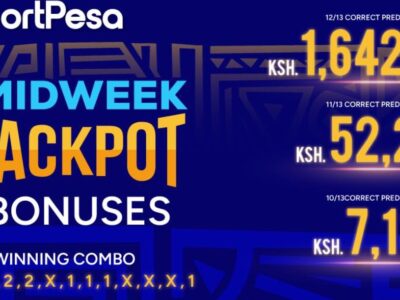Need to nudge the odds in your favor? Check our breakdown of the best strategies to use when placing your bets.
Winning Sports Betting Strategies That Work

Sports betting has blown up in recent years. The advent of mobile technology has made it easier than ever to bet on your favorite team. If you’re the kind of person who loves betting on competitive sports and wants to come out on top as the king of the weekend, use our valuable tips to gain a leg-up on friends and rivals alike.
On the moneyline
Betting the ‘Moneyline’ simply means you pick a team and place your bet based on them winning or losing. This is a great starting bet for beginners. Moneyline bets are the easiest to research, mainly due to the fact that betting on a favorite team is the closest you can get to a ‘safe bet’.
Some experienced bettors turn their noses up at moneyline bets, as the moneyline is considered the most basic form of sports betting. Don’t let that dissuade you from moneyline bets though, as they are particularly useful as an introduction to the potential winnings of sports betting.
Once you know your way around the basics, it’s advisable that you do sufficient research on the current state of the league, tournament, or championship you’ve taken interest in. The best strategies to keep track of current events all revolve around sources of information. Check official, reputable sports rankings consistently. Follow significant players and staff on social media, via news coverage, and even sponsorship deals. The more you know the greater your chances of placing a successful bet.
Point spread bets
With your margins set by oddsmakers, there are few bets more stable than point spread betting. With the odds controlled by an external influence, in-game upsets don’t alter the spread nearly as much as live bets. An experienced bettor, also known as a ‘sharp’, will always wait until initial spread bets are in. Some sharps will wait until the last opportunity to place their bet, all in the hope that a later bet will maximize their odds of winning.
A point spread bet is the next step up from a basic win or lose commitment. You either bet that your team will make the spread margin, or that they won’t. This way, you are able to place bets on more aspects of the game, instead of only sticking to winners and losers. In order to diversify your bets in this regard, it’s important to understand the capabilities of both teams.

On the runline
The baseball equivalent of point spread betting, runline bets are focused solely on whether or not the underdog team can hold out against the favorites. You can either bet that the favorite will beat the underdog by more than one run, or that the underdog keeps the game within one run by the end of the fixture.
Runline bets offer better potential returns than moneyline bets. With a 1 to 1.5 spread, your odds of winning are slightly better when siding with the underdog. The favorite team in the odds will have to win by two or more runs to cover the spread, meaning that the odds are slightly against the winning team.
Fade the public bet
Mainly used for spreads and totals betting, ‘fading the public’ basically means that you bet against the majority. Primarily a basketball and football strategy, this bet requires a keen sense of public sentiment.
Bet facilitators will often try to swing the odds in an underdog’s favor. This is done by adjusting spreads and totals to reduce the likelihood of any ‘safe’ bets. At the end of the day, sports would be quite a boring prospect if the same team won every single time. The chance of an upset is always a possibility, a fact that sportsbooks know all too well.
Keeping the betting line in mind will allow you to take advantage of shifting public sentiment. For example, let’s say the odds of your favorite NFL team winning their next match aren’t too great. They’re up against the top team in the NFL Power Rankings. However, a week before the match the competition’s star player gets injured, significantly altering the odds to be more in your favor.
In the above scenario, the best form of action would have been to bet after the news of the injury broke. This is all hypothetical of course, but it remains a highly relevant example. If you were able to foresee that potential injury, your bet would have had a much higher chance of bearing fruit.

Movers and shakers
Earlier we briefly mentioned the need to keep track of various dynamics such as transfers, injuries, and news stories. This is because you will need to stay ahead of the pack when it comes to sports knowledge. What good will dozens of statistics get you if you don’t know the type of player who gets those numbers?
The best approach is to look at it from micro and macro levels. Start by gaining all the knowledge you can about your favorite team. Once you know all the players, staff, and latest news, move on to that team’s competitors. You will gradually develop a macro perspective by building your foundation of knowledge from the ground up.
The transfer market is as engaging for some enthusiasts as sports betting itself. Transfers and injuries frequently occur unexpectedly, but a little-known fact is that there are usually telling signs before these shake-ups come to pass – signs that can only be caught by the most observant sports aficionado.
Focus on specialization
Focus your bets and try not to spread yourself too thin. Putting time and money into one too many sports will either exhaust you or mount the odds against you. Remember that you’re playing a game of chance, and the less risk you take on, the greater your chances of winning.
Focusing on one or two sports will give you breathing room in terms of schedule and due diligence, especially if you’re just starting out with sports betting. It takes time to get to know every detail on any particular sports team. For example, if you’re betting on an NBA team, it would benefit you greatly to gain knowledge on the ins and outs of the team.
It’s not enough to know the statistics. You need to have your finger on the pulse of every dynamic in order to stay ahead of the game. Things like injury substitutes, transfer rumors, and even public relations should all be taken into account; preferably before any betting takes place.















